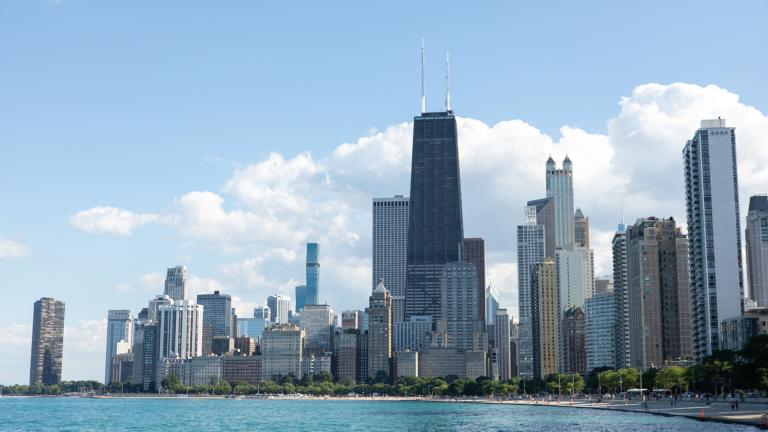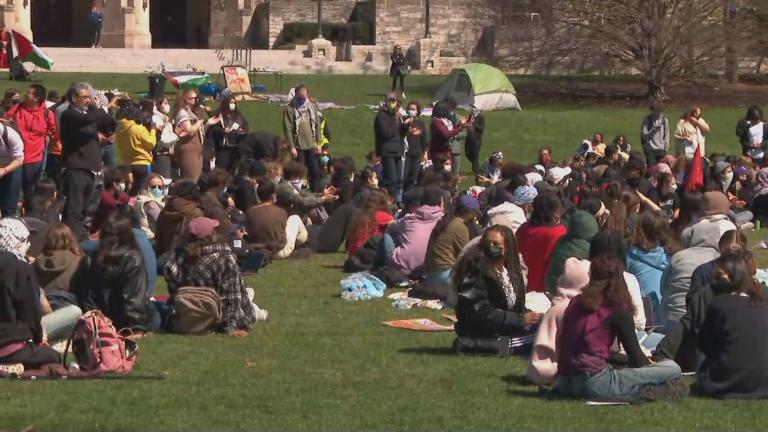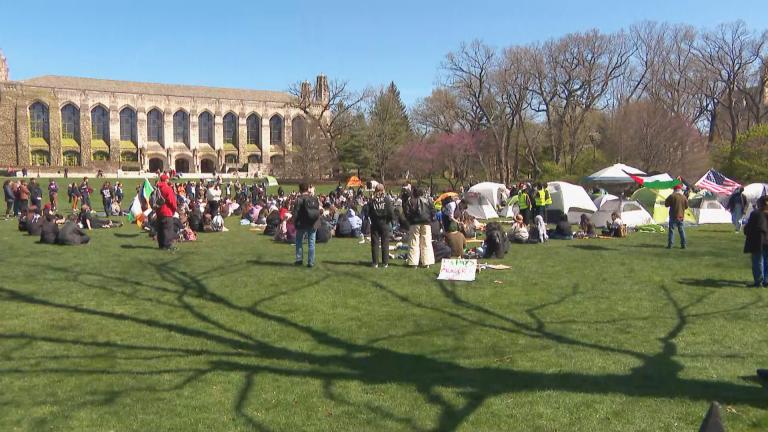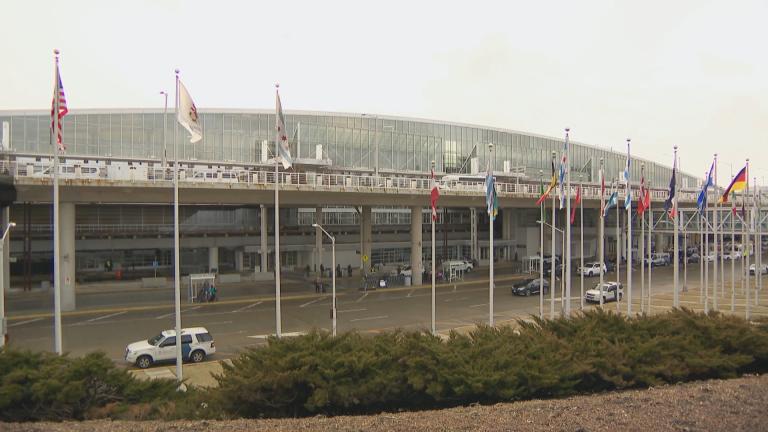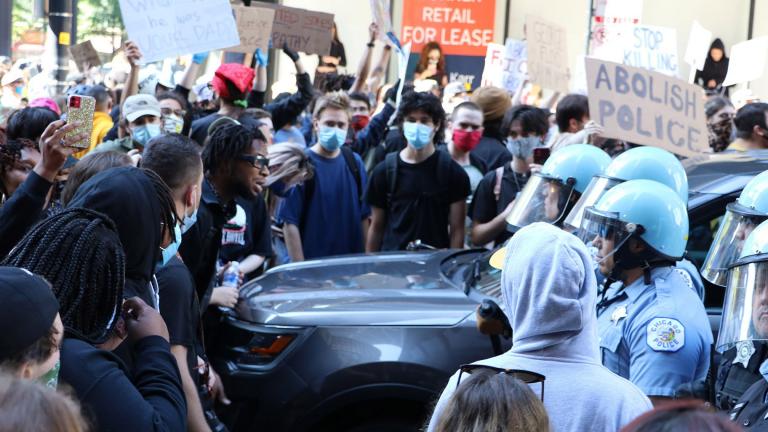Protesters in Illinois blocking major roadways could be charged with a felony if proposed legislation passes in the General Assembly.
The bill (HB 5819) comes on the heels of recent pro-Palestinian protests that blocked traffic on I-190 near Chicago O’Hare International Airport, causing many travelers to pull their luggage along the freeway to catch their flights.
Community organizations like the U.S. Palestinian Community Network — which was not a part of that protest — are pushing back on the bill. Muhammad Sankari, a member and organizer with the group, said the organization support protesting in this way.
“The majority of the people in the United States … want the genocide to end and want the U.S. to stop funding the Israeli genocide against the Palestinian people,” Sankari said. “Our lawmakers and this administration have not enacted the will of the people, and so the reality is that we need to continue to escalate until lawmakers and our policy reflect the popular will of the people of this country. We definitely understand that when you carry out direct action or civil disobedience there is a chance of arrest.”
State Rep. Dan Ugaste (R- St. Charles) is the lead sponsor of the bill, which would make it a class 4 felony to block an “exceptionally busy roadway” for more than five minutes, which could potentially block emergency vehicles.
He said this is a matter of public safety.
“Having it as a misdemeanor isn’t enough of a deterrent from having it going on,” Ugaste said. “This isn’t about anyone’s movement. I’m not even certain, I understand there were pro-Palestinian protesters that were there that day, but that came after the idea that we needed to do something about public safety.”
Ed Yohnka, the director of communications and public policy at the American Civil Liberties Union of Illinois, said there are already laws that make blocking roadways or building entrances a crime. While these are currently misdemeanors, Yohnka said elevating them to a felony charge raises First Amendment concerns.
“By singling out protests for the felony, what you’re doing is literally punishing the speech,” Yohnka said. “And that’s something that our First Amendment doesn’t allow. What we shouldn’t do is continue to act like speech and First Amendment expression is somehow dangerous, it’s something to be feared. I think that’s what even these kinds of proposals suggest.”
Yohnka said he believes that too often protests are portrayed as dangerous events that are against public safety. Rather, a balance of the two can be achieved.
“We shouldn’t be giving people a felony charge and have that felony charge carry with them the rest of their life for engaging in protests,” Yohnka said. “Especially about, you know, important public policy matters. And it doesn’t matter if they’re in the majority or the minority. We ought to protect that free speech and we ought to embrace it.”

